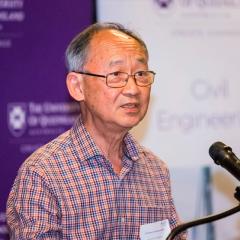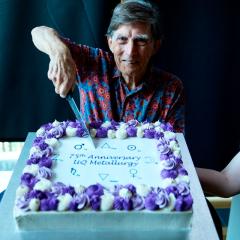Brisbane-based process engineer Nicholas Salmon is more than just a high achiever.
This UQ chemical engineering graduate won the University Medal in 2017 for his consistent academic excellence throughout his bachelor’s and master’s studies, but intellectual excellence is only one of the qualities that Cecil Rhodes set out in 1903 for his Rhodes Scholars.
Integrity of character, respect for fellow beings and a capacity for leadership were also must-haves for the postgraduate students that would be awarded the prestigious scholarships to study at Oxford University, and Nicholas embodies each of these.
Also a keen debater and musician, Queensland’s newest Rhodes Scholar has long played an active role in the community, directing the skills he developed while competing three times in the World Universities Debating Championships towards coaching the Queensland Schools Debating team to victory in 2016.
Now, Nicholas is turning his attention to a Doctor of Philosophy (DPhil) in Engineering Science at Oxford in 2020, where he will investigate the most effective ways to produce ‘green’ ammonia for fertiliser or energy.
He is currently employed as a process engineer in the Bauxite and Alumina Global Centre of Excellence of engineering, technical and professional services firm Worley.
“As an engineer, I contribute to my team by finding technical solutions that reduce our clients’ water, energy and resource consumption in economically feasible ways,” Nicholas said.
“The biggest threat to our community is climate change.
"It threatens our environment and economy, and in so doing threatens our very way of life.
“We need engineering solutions that allow us to continue to grow sustainably and prosper while reducing emissions and resolving economic concerns with transition to green energy.
“Oxford University is currently pursuing research in using renewable energy to generate green hydrogen and, subsequently, green ammonia using the Haber Bosch process,” he said.
“I propose to investigate the geographical gap between renewable energy sources and downstream users of ammonia, a common fertiliser.
“Australia is rich in renewable energy, while other major energy consumers, such as India, Japan, and Korea, have far less capacity to generate plentiful renewable energy.
“My research would identify the most effective ways to bring together disparate renewable energy sources to produce green ammonia for use in fertiliser or as an energy source.”
Media: UQ Communications, communications@uq.edu.au, 0429 056139, 07 3365 1120.



